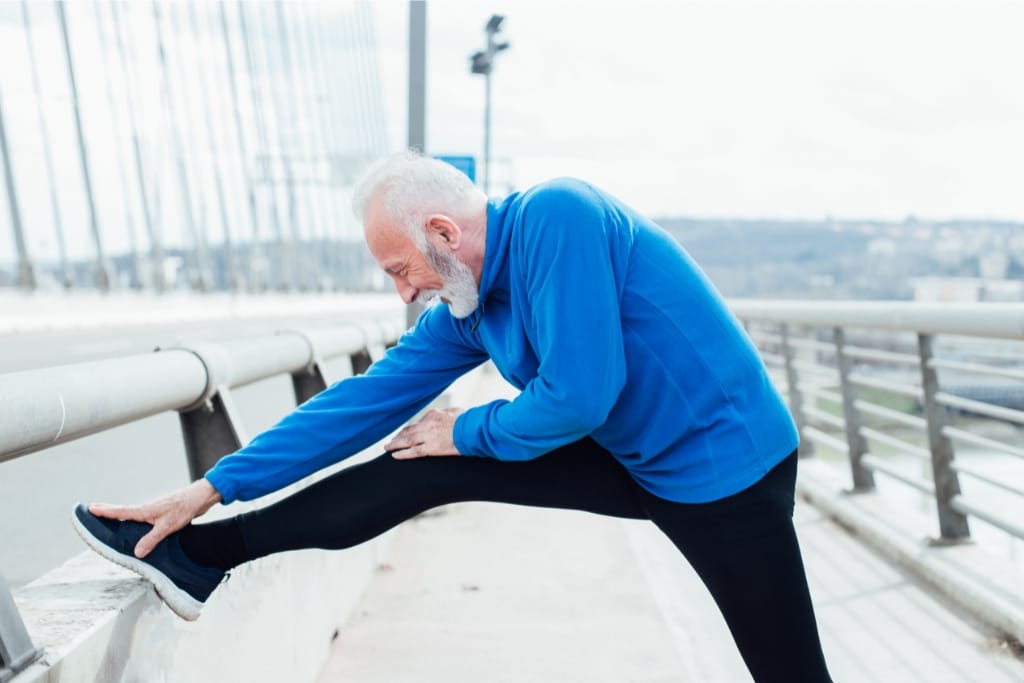Mesothelioma is a type of cancer that affects the lining of the lungs, chest, heart, and abdomen.
One of the most challenging aspects of this cancer is the treatment that patients undergo, which is often physically and emotionally exhausting.
Fortunately, there are some things that patients can do to manage the side effects of treatment and improve their overall health, and exercise is one such activity.
Despite the initial reluctance to engage in exercise, several benefits come with it during treatment for mesothelioma.
In this article, we’ll be looking at 10 proven benefits of exercise during treatment for mesothelioma.
1)) Improves Physical Functioning
Exercise can enhance physical functioning and help patients build endurance, strength, balance, and flexibility.
With regular exercise, patients can recover faster from treatments, perform routine activities with ease, and maintain independence.
2)) Reduces Pain and Discomfort
Cancer treatments can cause pain and discomfort in various parts of the body.
Exercise can help reduce the severity of these symptoms and improve overall self-reported pain management in cancer patients.
3)) Improves Mental Health
Exercise can help relieve stress, anxiety, and depression, which is common among cancer patients.
Regular exercise has been shown to increase the release of endorphins, which is the body’s natural feel-good hormone that reduces feelings of pain and improves mood.
4)) Reduces the Risk of Heart Disease
Mesothelioma treatments are known to increase the risk of heart disease.
Exercise can help reduce this risk by improving cardiovascular health, lowering blood pressure, and reducing bad cholesterol levels.
5)) Boosts Immune System
Exercise can help increase the production of white blood cells that help fight infections and diseases.
By boosting the immune system, cancer patients can better cope with the negative effects of treatments and reduce the risk of infection.
6)) Maintains Healthy Weight
Cancer treatments can cause weight loss, muscle loss, and weakness.
Exercise can help reduce muscle loss and maintain lean muscle mass while promoting healthy weight gain over time.
7)) Improves Sleep Quality
Cancer patients often experience insomnia or poor sleep quality, which can impact their overall health and well-being.
Exercise has been shown to promote better sleep quality and duration by reducing anxiety, depression, and stress.
8)) Improves Quality of Life
Exercise can help improve the overall quality of life in cancer patients.
It can help patients maintain their independence, engage in social activities, and reduce the severity of treatment-related side effects.
9)) Promotes Positivity
Exercise can have a positive impact on a patient’s mental health and self-esteem.
It can help them feel more hopeful, optimistic, and in control of their lives, which can be a valuable source of support when undergoing treatment.
10)) Increases Survival Rates
Studies show that exercising regularly during cancer treatment can increase survival rates and reduce the risk of cancer recurrence.
Therefore, exercise is a vital aspect of cancer treatment and care.
Pro-Tip: A hybrid approach to exercising can be extremely beneficial for a variety of reasons.
By alternating between a commercial gym and a home gym, you can better tailor your workout routine to suit your specific needs.
At the commercial gym, you get access to personal trainers, and a wider variety of equipment and machines than what is available at home, allowing you to target different muscle groups.
At home, you can focus more on form and control as you don’t have to compete with other gym-goers for equipment.
Plus, if your gym is closed or overcrowded, or if you're running low on time, you still have a place where you can work out in peace.
The hybrid approach provides the best of both worlds and is worth considering.
Conclusion
Exercise has several proven benefits during treatment for mesothelioma.
It can help patients maintain physical function, reduce pain and discomfort, improve mental health, and boost the immune system.
Also, it can reduce the risk of heart disease, maintain a healthy weight, improve sleep quality, and quality of life, promote positivity, and increase survival rates.
Therefore, cancer patients should talk to their doctors or certified trainers about specific exercises that would be effective for their unique needs and conditions.
Cancer patients should engage in exercise to complement standard treatments and improve their overall health and well-being.
Download Our Free E-book!








